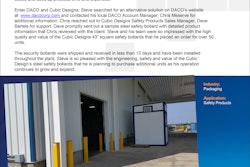Indianapolis—August 26, 2015—Stericycle ExpertSOLUTIONS released the findings of its Q2 2015 Stericycle Recall Index, which examined the impact of increased awareness about health and the environment on product recalls and response rates. The report found that consumer preference for these products is driving an increase in healthy product recalls, and creates complexities for manufacturers, regulators and consumers in the process.
The organic food industry is one of the key factors behind the surge in healthy product recalls. According to the United States Department of Agriculture (USDA), 70 percent of consumers believe a food is safer, more nutritious or of higher quality if it is labeled as organic. However, with a greater amount of healthy products available in the marketplace, the industry is experiencing an uptick in associated recalls. According to the Q2 index, more than 64 percent of food recalls were related to healthy products since 2012. This trend continued to manifest itself strongly in Q2 2015. Sixty-five percent of the quarter’s events were related to healthy food, with listeria contamination and labeling issues among the chief drivers.
“The Q2 index data underscores that consumer demand for healthy products is growing rapidly,” said Kevin Pollack, vice president, Stericycle. “The trend shows no sign of slowing and companies are looking for ways to expand into this high-growth sector. For example, leading food manufacturers have reconfigured their products to cater to the health-conscious consumer. In other industries, companies focusing on eco-friendly products are experiencing record success. Our analysis reveals that this heightened awareness results in an increase in associated recalls, making it essential that companies rethink their recall execution plans and expectations for consumer response.”
The impact of increased consumer interest in healthy living extends beyond food into other sectors as well. Numerous large-scale recalls in the fitness equipment and clothing industries were challenging for businesses in wide geographical markets. One company paid over $67 million in expenses related to a 2013 recall and was in the news again in 2015 for another event. This highlights how greater demand for fitness products leads to more large-scale, distributed recalls, which compounds the overall financial impact for manufacturers and brings new brand protection complexities.
A prime example of consumers’ increased preference for eco-friendly products can be found in the solar panel industry. As these products grow in popularity, they also experience recall ramifications. More than 1.3 million solar panels were recalled in 2014 due to an electrical shock hazard—becoming the first large-scale recall the category experienced. With analysts predicting increased growth for the U.S. solar industry in 2015, these new investments may result in a similar uptick in associated recalls. Electric vehicles and hybrid cars are additional products frequently preferred by today’s environmentally conscious consumer. As with any new product on the market, hybrid vehicle manufacturers face an increased risk of potential recalls as they master new technologies, designs and production processes. These aspects, combined with the fact that major hybrid manufacturers are located outside of the U.S., likely pose new recall execution challenges as sales of these vehicles continue to grow.
“Increased activity related to healthy products is resulting in greater regulatory scrutiny, which adds further complexity for manufacturers,” continued Pollack. “In order to maintain compliance, prevent financial and reputational damage, and protect consumers, it’s essential that companies review and revise their recalls plans on a regular basis. Those that do so are primed to successfully capitalize on the market potential of the health-conscious movement, grow revenue and increase consumer loyalty in the process.”



















